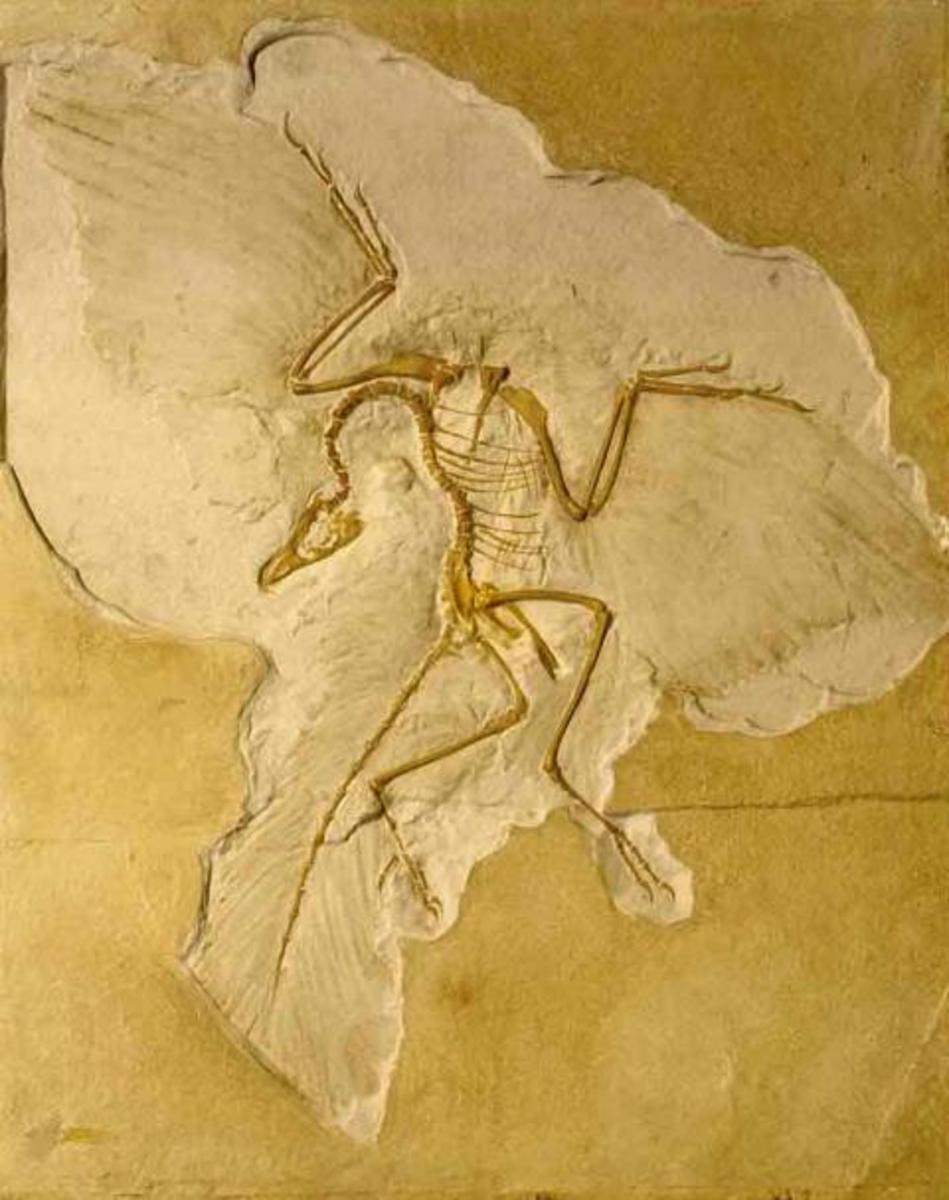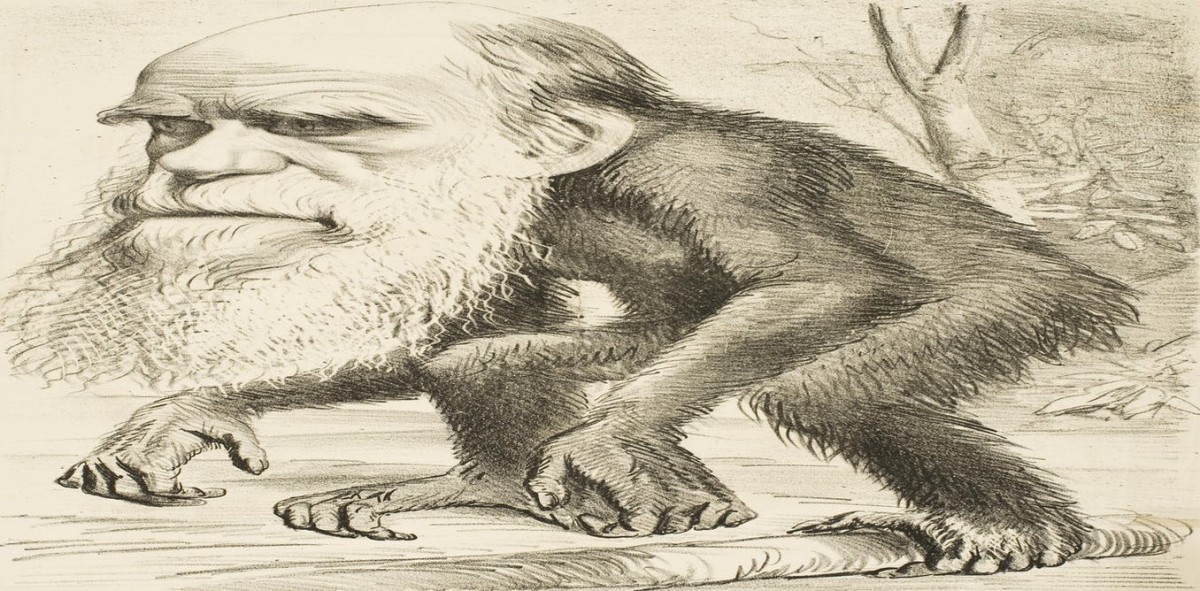Another Theory of Evolution
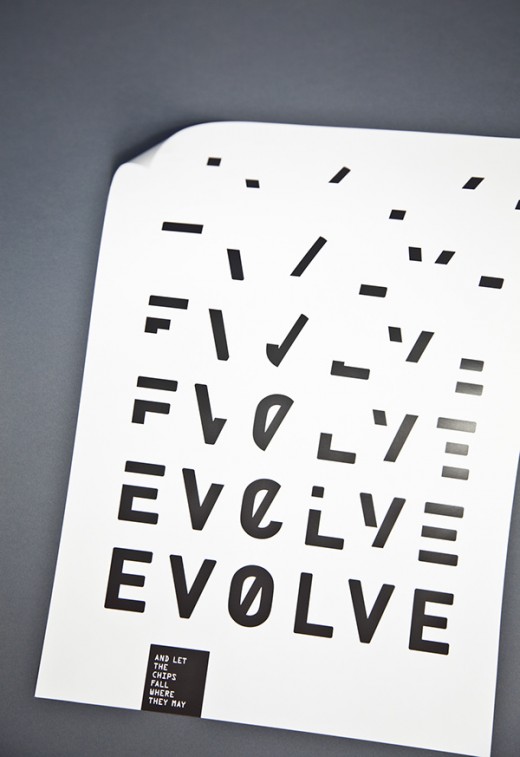
The Background
There is no sign to show that we are evolving. But there are far too many signs that show, human lifestyle, or the set of priorities that constitute it, evolving constantly. Why didn’t we think of a theory in connection with this, which could have helped in the adaptation of the appropriate lifestyle for humans, without leaving the human society in perpetual turmoil, as it is now.
I think there was room, waiting for a theory in this regard. And I also think, it happened to get filled by the very first theory, which turned out to be a brilliant one, though not right. And I think its brilliance effectively stopped further research.
Let facts speak for themselves. There was neither a sign that necessitated man to evolve, particularly in physical appearance, nor was there another one, that showed partially evolved ones. But there were enough signs, which showed everyone nurturing a constantly evolving set of priorities that greatly influence the way the life continues to progress, for one and all. We call it by the noun lifestyle, which is nothing but the aggregate of such a set of preferences. So, in reality, more than the human, it is the human lifestyle that is evolving. But, since we could easily notice the former, differences in appearance took better of us. And when we came up with a theory, it overlooked the changing life style, though obvious, and caught on the changes in appearance, though marginal.
I think it happened thus because of this difficulty. Far too many aspects related to our lifestyle show signs of gradual change. That can lead to many variables involved in its examination, making the study of its evolution, an impossible one. We surmounted this difficulty, when our lifestyle came to be acknowledged as a complex stuff, which effectively divided it to many streams, each becoming an area of specialization in itself. Many of these adorning intellectually demanding positions as faculties of knowledge. And the complexity is on the increase, perhaps in a haphazard manner, that too without any worthwhile contribution from us to simplify the same. On the contrary, it is our input that makes our life pleasant everywhere else, like agriculture, or technology. (We take pride in the fact that our life is complex, as well as belittle the life of all other forms for its simplicity and ease!) Also, we are always ready to make any alterations to whatever is our way of doing things currently, just to make our life more pleasant. That is, we agree to make any changes anywhere else, just to enable us to continue with our current lifestyle. Why is that, in spite of the admirable progress we make in all spheres of life, like technology and medicine, human life does not flow smoothly?

The Start
In fact here we are lucky. Human life can be simplified as a complex set of preferences. And there is a single point which controls all such preferences, whether it is about social life, professional one, or whatever. In most cases, this is what is one’s God, and it makes our task, a really straightforward one. More than whether man is a product of evolution or not, or, rather than investigating into the vast foray of unpredictable priorities that form our lifestyle, we could spend all our efforts in only one direction - debating about the evolution of God. Though there are far too many signs indicating to the evolution of God, we dismiss all such signs with a stock response. ‘Whenever the ancients made a reference to animals, natural wonders, or some other sign as God, they really were having whatever is our current idea, in their mind.’
In fact, God is a unique idea, which, while dictating and controlling all that we think or do, splendidly supports itself. One can see it evolving every day, when our current idea about God shapes itself to keep in pace with new developments, especially in science, while simultaneously and silently altering our appreciation of all things. (All this happens on the quiet. The moment a theory or observation that is likely to cast a shadow on the existing idea of God, becomes rather indisputable, the very idea of God turns a little in the abstract, just enough to circumvent or nullify the effects of such a theory or observation.)

Signs Overlooked
While discussing the evolution of religious belief, I found one book mentioning something very important. When thoughts like that of God originated in the early humans, the idea of God would have been of one as real as the mountains, waterfalls, forests, thunder, lightning, or eclipses, which all were thought to be the homes from where Gods came. The idea of God was something quite similar to whatever idea they possessed about such magnificent sites. As time went by, they learned more about all these wonders. That these are, more than wonders, real, consisting of different substances, having certain composition, and identifiable functions, all of which alterable to a great extent, by their effort. And they would have learned to tame some of these for better living. But, all these while, the idea of God remained intact. How did this come to be? To make this a possibility, we constantly attribute style, power, and a fertile imagination to the ancient ones. (We attribute them with ignorance, everywhere else!) Some of them think in a particular manner and unearth the secrets of nature, while some others think in a manner exactly opposite to it, to keep the idea of God safeguarded from any change. It seems all those who thought, deliberated or wrote about this are in total agreement here.
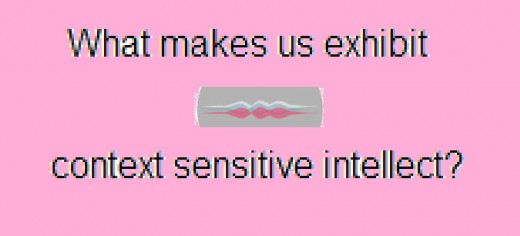
Few Questions
What can explain the above? What makes us exhibit such a context sensitive intellect?
As far as real things go, the ancients must have felt encouragement from all quarters. And the pursuit of the secrets of nature, naturally followed. But we know, for imagination to flourish there should be something, like the society, to appreciate and support it. A king, like in earlier times, or a government, or other organizations that offers encouragement. One can see, the prevalence of great poetry, or impressive sculptures, indicate as much to the supportive nature of the society as to the creative talents of that era.
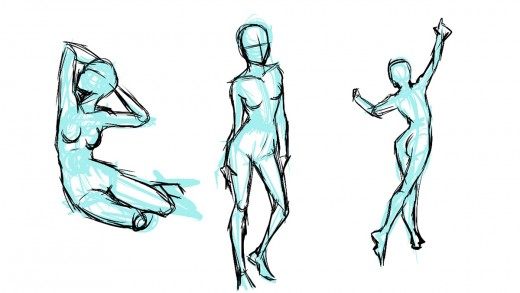
Few Answers
In the above light, our assumption about the ancients having an expressive, fanciful, and fertile mind seems to be wrong. Ancient world could not have been one where talents of imagination flourished. You see, the very activity of staying alive would have involved protecting themselves from the dangers posed by the weather and the wilderness. And a lion’s share of human effort would have been spent here, leaving hardly any time for reflections, debate, or discussions about the routine tasks involved in progressing one’s life. Rather than ascribing motives of supplication, exploration or experiment, I think we should see the remnants of the distant past, more than as products of imagination, as a record of observations, or reactions to all that was impressive.
Look, all animals are capable of doing something no man can do. This is all the more striking, if we think of the days before the appearance of implements or weapons of various nature. It is only normal that such beings become a revered lot. For each and every activity that man cannot do, there is some other being from the kingdom of animals, who excels in it. Man was comfortable with his limited superiority.
Time went on, changing our perception about things, and altering greatly, the capabilities of man. We reached a position where there is a ready explanation regarding almost all things. That creates a vacuum, since there is nothing to submit to. We hence started to imagine of some entity, and present ourselves to it. Here one needs to admit, our fertile mind came up with admirable acuity. And provided a simple, but effective answer. Think of all those we used to submit to, as two, rather separate, entities. One we can see as well as sense, and another we can only feel. Which will be giving rise to a plethora of objects, both real and imaginary, all of it fitting into three heads, namely, religion, science, and those not belonging to either. Religion happened to get accumulated with things we can see and feel, as long as one can do it successfully. Then science comes and takes over a few things, starting with areas where religion clearly falters. Things that can belong to either heads also got into groups. Like the many facets of arts, and those belonging to neither religion nor science. These can come to great use, where none else fit.
Science is progressively displacing religion and God. I think the final gasps of life is coming out from both religion and God, painting an ambience of violence everywhere. A discernible replacement for God and religion is evolving, bringing an end to both, even if none of us recognize it. (It can happen much earlier, if we pay heed to these thoughts!) And we shall then follow the true lifestyle, which we should have been following, from the days of big bang itself.
The Conclusion
We wouldn’t have been facing this situation had the theory of evolution addressed the spiritual sphere of life instead of the biological one. Since Darwin took an easy path and examined the living forms physically, similarities could be seen among different species of life. Had he chosen to examine the less obvious features of life, origin of deities would have been the outcome, and perhaps, an insight into how our priorities change. Which could have thrown more light on the spiritual dimension of life, and how to bring it in tune with the current priorities at all times. Not to mention of the good that would have happened by now, had human efforts been directed away from wars and strife.
© 2019 ROY T JAMES



